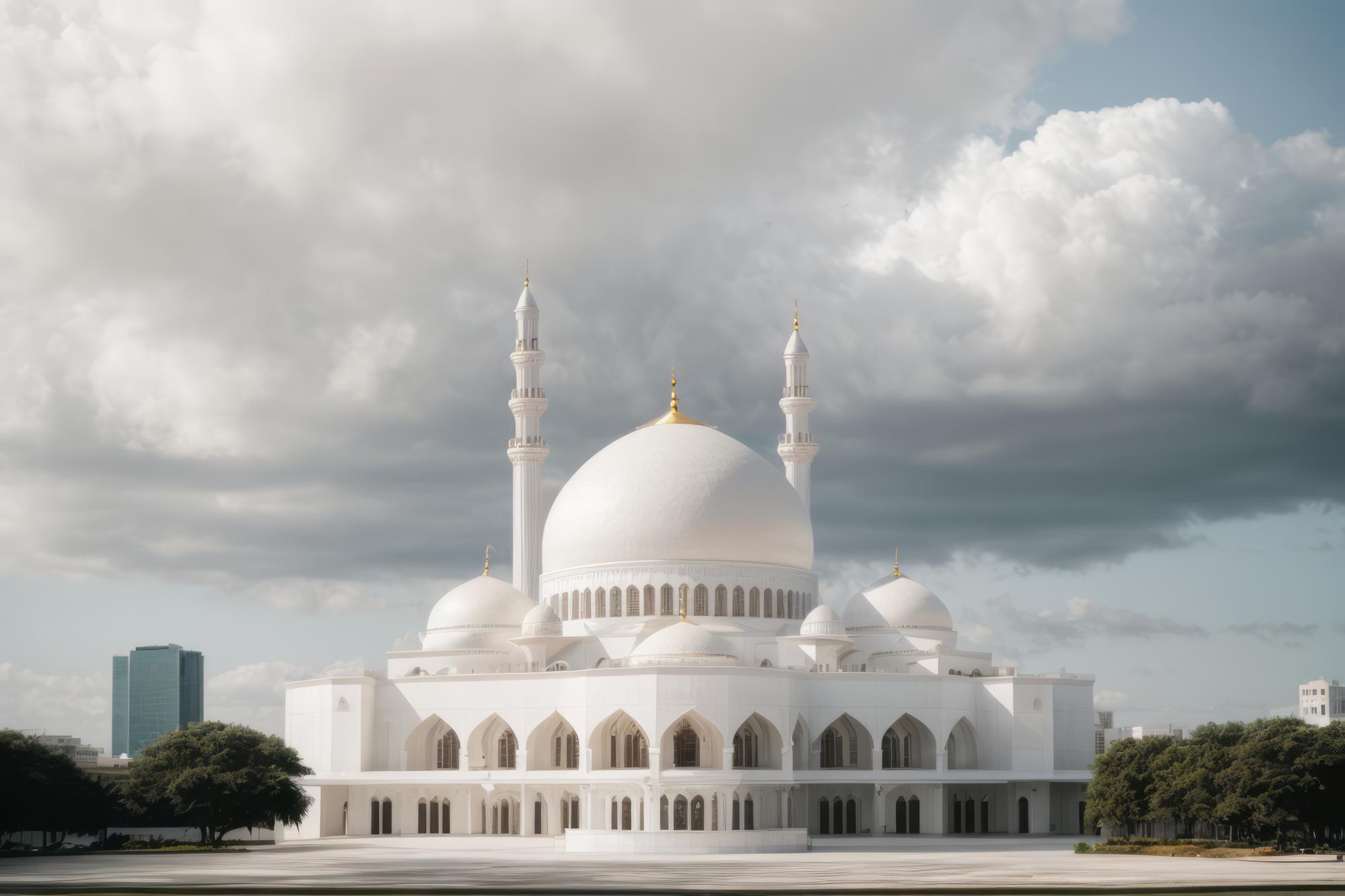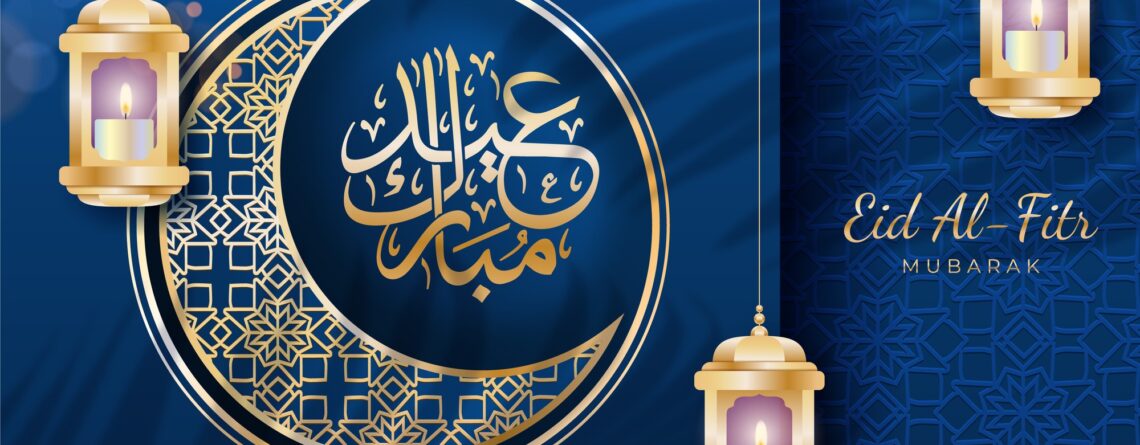History and Significance of Eid al-Fitr
Nova Parker2024-04-03T12:55:24+00:00Eid al-Fitr, the Festival of Breaking the Fast, holds a significant place in the hearts of Muslims worldwide, steeped in history and imbued with deep spiritual significance. As the crescent moon signals the conclusion of Ramadan, Muslims globally await the eagerly anticipated celebration of Eid al-Fitr. This sacred holiday, observed on the first day of Shawwal, embodies profound spiritual significance, representing the joyous culmination of a month dedicated to fasting, prayer, and introspection.
In 2024, Eid al-Fitr is set to occur on Wednesday, April 10th, marking a momentous occasion for millions of believers around the globe. In this article, we delve into the origins, importance, customs, and global observance of this sacred holiday, exploring its rich tapestry of traditions and its enduring relevance in contemporary society.
What is the Story Behind Eid al-Fitr?
Eid al-Fitr finds its roots in the Islamic tradition and commemorates the end of Ramadan, the holy month of fasting. According to Islamic belief, Eid al-Fitr was established by the Prophet Muhammad after receiving revelations from Allah. It is said that upon completing the month of fasting, the Prophet Muhammad and his companions celebrated the first Eid al-Fitr with prayers, feasting, and acts of charity, setting a precedent for future generations.
Why is Eid al-Fitr Important?
Eid al-Fitr holds profound significance in Islam for several reasons. Firstly, it marks the culmination of Ramadan, a month-long period of fasting, prayer, and self-reflection. Eid al-Fitr symbolizes the completion of this spiritual journey and serves as a time for Muslims to express gratitude for the blessings received during Ramadan. Additionally, Eid al-Fitr emphasizes the importance of community, charity, and compassion, reinforcing the values central to Islamic teachings.

What to Do on Eid al-Fitr:
On Eid al-Fitr, Muslims engage in a variety of customs and rituals to honor and celebrate the occasion:
- Commence the day with the performance of the Eid prayer, conducted collectively at mosques or designated prayer grounds.
- Following the prayer, families come together for festive meals, fostering bonds and exchanging greetings and gifts with relatives and friends.
- Acts of charity, such as giving Zakat al-Fitr (obligatory charity), are highly encouraged to ensure that the less fortunate can also partake in the festivities and experience joy and abundance.
By participating in these rituals and observances, Muslims uphold the significance of Eid al-Fitr, strengthen community ties, and demonstrate generosity and compassion towards others.
Things You Should Not Do During Eid al-Fitr:
During Eid al-Fitr, Muslims worldwide revel in joyous celebrations, marked by delightful feasts and heartfelt exchanges. However, amidst the jubilation, it’s crucial to uphold certain practices to preserve the festival’s sanctity and demonstrate respect:
- Fasting: Eid al-Fitr signifies the culmination of Ramadan, a month-long period of fasting for Muslims. It is imperative for Muslims not to fast on this auspicious day, as it symbolizes the end of the fasting obligation.
- Abstaining from alcohol: Consumption of alcohol is strictly prohibited in Islam, including during Eid al-Fitr festivities. Even non-Muslims or those not observing Eid should refrain from drinking alcohol in public spaces, especially when visiting Muslim-majority countries, as a sign of respect for the religious sentiments of others.
- Avoiding pork and haram foods: Muslims adhere to dietary laws that prohibit the consumption of pork and other foods deemed haram (forbidden) in Islam. It’s important for Muslims to maintain these dietary restrictions during Eid al-Fitr, as a continuation of their commitment to religious principles and values.
By observing these guidelines, Muslims uphold the sanctity of Eid al-Fitr and demonstrate reverence for the spiritual significance of the occasion.

Which Countries Celebrate Eid al-Fitr?
Eid al-Fitr is celebrated by Muslims around the world, spanning various cultures, languages, and geographical regions. Countries with significant Muslim populations, including but not limited to Saudi Arabia, Indonesia, Pakistan, Egypt, Turkey, and Malaysia, observe Eid al-Fitr as a public holiday. The diversity of traditions and customs associated with Eid al-Fitr reflects the rich tapestry of Islamic culture and heritage. If you’re planning to celebrate Eid al-Fitr in one of these diverse destinations, why not make your experience even more special by booking your hotel through Yiata? Yiata offers a wide range of accommodations in countries like Saudi Arabia, Indonesia, Pakistan, Egypt, Turkey, and Malaysia, where Eid al-Fitr is celebrated with great fervor.
Eid al-Fitr and Eid al-Adha:
While both Eid al-Fitr and Eid al-Adha are important religious holidays in Islam, they differ in their significance and observance. Eid al-Fitr celebrates the end of Ramadan and is characterized by prayers, feasting, and acts of charity. In contrast, Eid al-Adha, also known as the Feast of Sacrifice, commemorates the willingness of Prophet Ibrahim (Abraham) to sacrifice his son as an act of obedience to Allah. Eid al-Adha involves the sacrifice of an animal, such as a sheep or goat, and the distribution of meat to the needy, symbolizing devotion and submission to Allah.
Conclusion:
Eid al-Fitr stands as a testament to the spiritual resilience, unity, and generosity of the global Muslim community. Through its rich history, profound significance, and vibrant celebrations, Eid al-Fitr continues to serve as a beacon of hope and solidarity, bringing people together in faith and fellowship. As Muslims worldwide gather to observe this auspicious occasion, they reaffirm their commitment to the values of compassion, gratitude, and brotherhood that lie at the heart of Islam.
